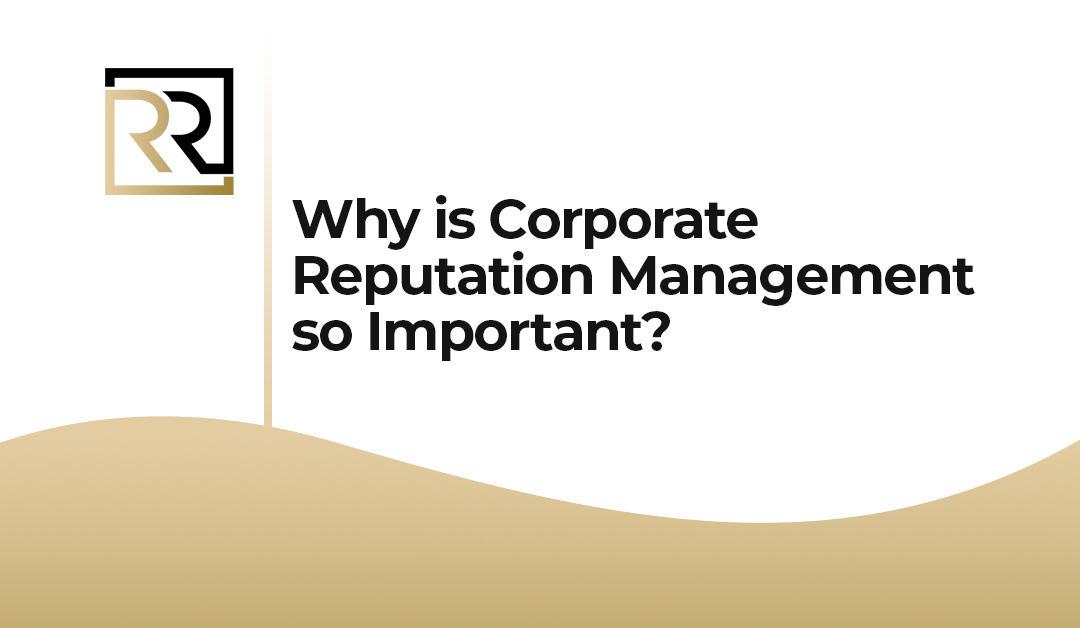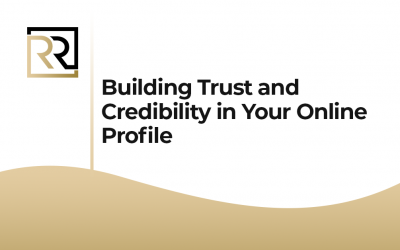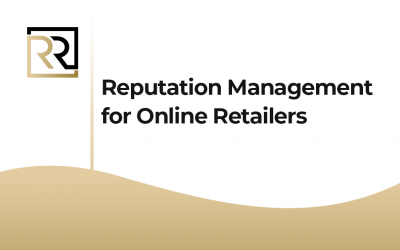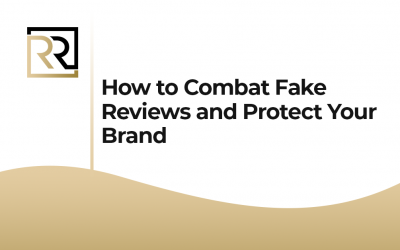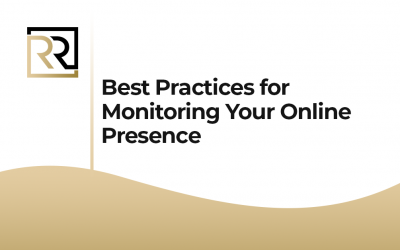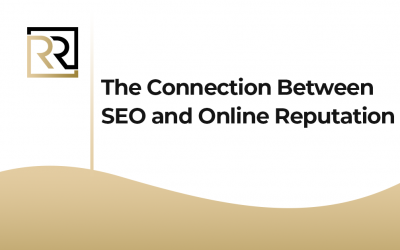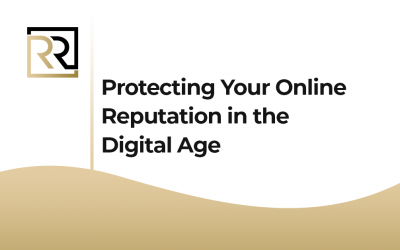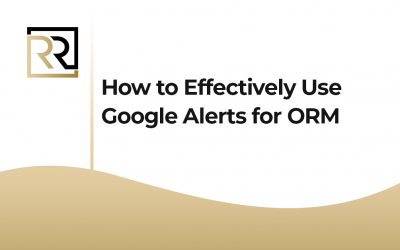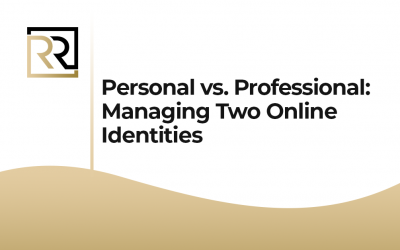Reputation Management
Because reputation is founded on opinion, it is influenced by a variety of elements that should be taken care of by Reputation Management. Every business has a set of essential realities. First and foremost, products and services are the lifeblood of every business. Secondly, every company has a brand (whether they intentionally build it or not). Finally, online brand reputation is important. But why is Corporate Reputation Management so important?
The Importance of Reputation Management
If a brand has poor evaluations, 50% of consumers will doubt its competence.
Customers read internet reviews 95% of the time before making a purchase. 69 percent of job applicants said they would not accept a position with a terrible reputation.
Reduced negative search results, according to 54 percent of CEOs, would fuel revenue growth. So, we know that online reputation matters since it influences real-world decisions like hiring and selling. And tens of thousands of potential consumers, stakeholders, and workers read internet reviews of your company.
What is reputation, exactly?
Customers, stakeholders, workers, and the general public all have an opinion on a company’s or individual’s reputation.
We estimate corporate reputation using a qualitative scale ranging from “good” to “poor” rather than a numerical score because it’s very abstract. Because reputation is founded on opinion, it is influenced by a variety of elements, including remarks, actions, associations, third-party comments, social media, and, most notably, Google search results.
What are the benefits of having a good reputation?
Reputation Management and Online reputation is essential in the internet age. Therefore, consider your marketing plan for a minute. Your paid team purchases advertising in a variety of media, including broadcast, print, internet, and display. Further, to acquire top-tier brand mentions, you spend time in public relations. Your public relations staff is always sending out news releases to promote your products and services.
All of these efforts ultimately go to one destination: Google. And what potential consumers find there will influence their perception of your company. Your marketing efforts will be magnified if it is favorable and consistent with your brand messaging. Moreover, your marketing ROI will suffer if your Google results are unfavorable, off-brand, irrelevant, or filled with rival material.
I’ll show you some convincing facts demonstrating the value of reputation in business for consumers, leaders, and firms, as well as several significant reputation benefits.
Offline brand perception is influenced by online reputation.
Indeed, it’s tempting to disregard what happens online as insignificant to a company’s day-to-day operations. However, your internet company’s reputation has a significant impact on offline brand perception.
For proof, look no further than the following reputation management data.
Why is a CEO’s reputation so important for Reputation Management?
The reputation of a CEO is crucial since it affects the entire firm.
Several decades ago, when business leaders rarely stepped beyond the boardroom, this link was not as strong. CEOs now have a plethora of channels to voice their uncensored ideas, and news cycles flare instantly. Moreover, many executives, thankfully, are increasingly aware of how their personal brand affects the company’s reputation.
According to a Forrester Consulting report, 74% of executives feel that their consumers associate brand impression with CEO perception.
Personal remarks by CEOs have disastrous effects for the businesses they run since they are the face of their companies.
Consider the Boycott Goya movement, which gained traction when the CEO applauded Mr. Trump but faded before causing any harm. Consider how one CEO’s bad press cost his firm $96 million in market value in only hours. Another example is Elizabeth Holmes of Theranos. After she committed startling amounts of deception, which culminated in an HBO documentary, her company’s $9 billion valuation vanished.
Naturally, the inverse is also true.
Zappos’ CEO, Tony Hsieh, has one of the finest reputations of any Fortune 500 CEO. He frequently demonstrates transparency and thought leadership, including responding to consumer complaints and comments on Twitter. Furthermore, His efforts to improve his personal brand have resulted in the firm he leads having a strong internet reputation.
What is the significance of company reputation?
According to Harvard Business Review, organizations with a good reputation can:
- Attract better candidates.
- Charge a higher price.
- Customers are loyal to you.
- Furthermore, according to HBR, these firms have greater price-earnings multiples and market valuations, as well as lower capital costs, because they consistently deliver consistent earnings and future growth.
Consumers are affected, as well.
Google provides customers with fast access to endless data, allowing them to compare more firms and conduct more research than ever before. Customers may read product reviews, investors can learn more about a CEO, and job seekers can learn more about a potential employer. For better or worse, Google’s first page is one of the most critical determinants of a company’s reputation.
Also, negative employee ratings will cause you to lose top personnel and push you to spend more money on recruitment. A volatile CEO will frighten away investors, limiting financial availability. Furthermore, negative customer reviews prohibit you from increasing ecommerce purchases.
What is the significance of reputation management?
It’s undoubtedly obvious by now that your company’s most valuable asset is its reputation. However, a brand’s online reputation is frequently out of sync with its offline reputation. Besides, because search results are filtered by an algorithm that considers hundreds of distinct ranking signals, this is the case. As a result, if you do nothing, your search results will remain unchanged.
You can, however, influence what shows for branded search queries if you know how to use such signals.
This is where reputation management enters the picture. The moat and drawbridge of your brand’s digital castle are reputation management. Moreover, not only do reputation management organizations safeguard your brand. But additionally, they also create the sort of positive material you want your consumers and stakeholders to find when they want it.
Nearly every facet of your firm may benefit from reputation management. It is, however, a highly technological procedure that necessitates knowledge and cross-disciplinary collaboration. Going it alone, or even worse, partnering with a high-risk, shadowy business, might cause more harm than benefit. So, before partnering with any ORM business, ask these ten easy questions.
Let us now look at the significance of online reputation management (ORM).
Market value = Market share
Good brands compete for customers’ attention in a crowded market. To stand out in this extremely competitive industry, it requires a tremendous lot of effort, money, and time. But, above all, you must have a good reputation.
According to a recent research, when firms enhance their reputation, their market worth increases by 8 out of 10 times. In addition, according to the Forrester Consulting report, 41% of brands feel that decreasing unfavorable search results will boost market share.
Moreover, maintaining a favorable brand image is critical to your brand’s market performance.
Revenue
Because there are so many factors, tying reputation to a specific financial figure is practically difficult. However, we do know that firms with a poor reputation pay a high price in terms of revenue. According to VisionCritical, the cost of a negative image in the United States is $537 billion!
Would you want a more particular example? We assisted a national furniture merchant in recouping $32 million in monthly income. The case study may be found here.
Board members and investors
Furthermore, Investors are critical to your company’s financial health since they provide you with funds to drive expansion. R&D, acquisitions, and team growth are all aided by this investment. Moreover, members of the board are also valuable because of their connections and skills. Investors, on the other hand, want to be rewarded with predictable and consistent profits rather than unneeded reputational risk.
Customers
Customers currently have access to dozens of review websites. This is a fantastic mechanism for virtual word-of-mouth referrals. Unfortunately, these forums may serve as a haven for irate consumers to air their grievances. Moreover, negative reviews don’t always convey the whole picture, but they have a big influence on whether or not a consumer decides to do business with you. Nonetheless, 91 percent of 18-to 34-year-olds feel evaluations are as reliable as a personal recommendation, according to Podium.
What’s more, online reputation management businesses keep track of brand reviews and sentiment to ensure that they appropriately reflect your company. As a consequence, you’ll be able to intervene and resolve problems before they become out of hand.
Employment
Customers aren’t the only ones who can submit online evaluations about your company. In fact, feedback can be left by both current and past workers. Glassdoor, an employee review site, employs a five-star rating system for both the firm and its top executives. Unfortunately, much like consumer review sites, Glassdoor may be used by unhappy workers to exact revenge on a former company by exaggerating or entirely distorting the truth.
Also, one-star reviews may surface on the first page of your search results since review sites score well in Google for branded keywords. As a result, you’ll have a hard time finding top talent, or you’ll have to pay a premium to get them to work for you.
Unfortunately, removing Glassdoor reviews is exceedingly difficult. That means the only option to remove them is to push them further into Google, where they are less likely to be discovered.
If you Need assistance in your Corporate Reputation Management Feel free to contact us. We can definitely help!
Services
Our Services
Search Engine Content Removal
Social Media Content Removal
Positive Content Creation
Online Reviews Optimization
Search Results Optimization
Learn
Our Blog
Building Trust and Credibility in Your Online Profile
Building Trust and Credibility in Your Online Profile Further, in the digital age, establishing trust and credibility in your online profile is paramount for personal and professional...
Reputation Management for Online Retailers
Reputation Management for Online Retailers Further, in the fast-paced world of e-commerce, building and maintaining a positive online reputation is paramount to success. Thus, with countless...
How to Combat Fake Reviews and Protect Your Brand
How to Combat Fake Reviews and Protect Your Brand Wondering how to Combat Fake Reviews? In general, in the digital age, online reviews wield tremendous influence over consumer purchasing...
Best Practices for Monitoring Your Online Presence
Monitoring Online Presence In today's hyperconnected world, monitoring online presence plays a pivotal role in shaping your personal and professional reputation. Starting from social media...
The Connection Between SEO and Online Reputation
SEO and Online Reputation Further, in the digital realm, where visibility and credibility reign supreme, the relationship between search engine optimization (SEO) and online reputation...
Protecting Your Online Reputation in the Digital Age
Protecting Your Online Reputation In an era dominated by digital interactions and virtual connections, protecting your online reputation holds immense significance. Whether you're an...
The Power of Positive Online Branding for Entrepreneurs
The Power of Positive Online Branding for Entrepreneurs The Power of Positive Online Branding, in the dynamic world of entrepreneurship, establishing a strong online brand presence is not...
How to Effectively Use Google Alerts for ORM
How to Effectively Use Google Alerts for ORM Use Google Alerts for ORM, in today's digital landscape, maintaining a positive online reputation is essential for individuals and businesses...
Personal vs. Professional: Managing Two Online Identities
Online Identities - Navigating Personal and Professional Spheres in the Digital Realm In the digital age, where our lives seamlessly intertwine with online platforms, the question of managing...


